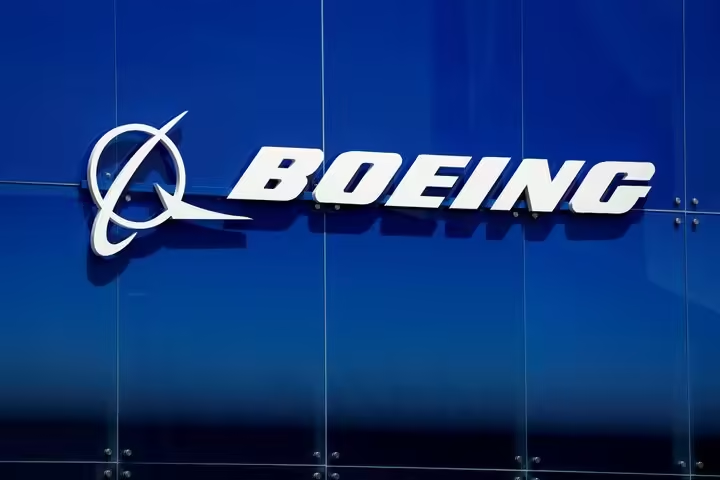NASA’s recent decision not to use Boeing’s Starliner capsule to bring back two stranded astronauts marks yet another setback for the aerospace giant, adding to the company’s ongoing troubles. While the financial impact might be minimal, the reputational damage could be significant.
Boeing, once a symbol of American innovation and engineering excellence, has faced a series of challenges in recent years. The company’s image has been severely tarnished following the tragic crashes of two 737 Max aircraft in 2018 and 2019, which resulted in the loss of 346 lives. These incidents brought intense scrutiny to the safety of Boeing’s products. Concerns were further heightened earlier this year when a panel blew out of a Max aircraft during a flight in January.
In the latest blow, NASA announced that it would be safer to keep the astronauts in space until February rather than risk bringing them back using Boeing’s Starliner capsule, which has been beset by issues with its propulsion system. NASA administrator Bill Nelson emphasized that the decision to send the capsule back to Earth without the astronauts was driven by a “commitment to safety.” Despite Boeing’s assurances that Starliner was safe, based on recent tests of its thrusters both in space and on the ground, NASA opted for caution.
The space capsule program constitutes only a small fraction of Boeing’s overall revenue, but it carries significant symbolic importance. Transporting astronauts is a high-profile task, similar to Boeing’s work on the Air Force One presidential jets.
Aerospace analyst Richard Aboulafia noted that this situation represents “another black eye” for Boeing. Although it will “sting a little longer,” Aboulafia suggested that the company has faced similar challenges in the past and will likely navigate through this one as well.
Since 2018, Boeing has suffered financial losses exceeding $25 billion, primarily due to the downturn in its aircraft manufacturing business following the Max crashes. For a while, Boeing’s defense and space division provided some relief, delivering strong profits and steady revenue through 2021.
However, since 2022, even the defense and space side of the business has struggled, posting losses of $6 billion—slightly more than the losses incurred by the airplane division during the same period. These results have been weighed down by several fixed-price contracts with NASA and the Pentagon, including one for the new Air Force One jets. As costs for these projects have exceeded expectations, Boeing has been forced to absorb the additional expenses.
In the second quarter of this year alone, Boeing recorded a $1 billion loss from fixed-price government contracts. This issue is not a new one for the company. Former CEO David Calhoun remarked last year, “We have a couple of fixed-price development programs we have to just finish and never do them again.” He was clear that these types of contracts have been a significant burden for the company.
Boeing was awarded a $4.2 billion fixed-price contract by NASA in 2014 to develop a vehicle for transporting astronauts to the International Space Station (ISS) after the retirement of the space shuttles. At the same time, NASA awarded SpaceX a $2.6 billion contract for the same purpose. Given Boeing’s extensive history of building airplanes and its longstanding relationship with NASA, the company was initially seen as the frontrunner. However, the Starliner program has been plagued by technical problems, resulting in canceled test launches, delays, and cost overruns. In contrast, SpaceX succeeded in sending astronauts to the ISS in 2020.
This year, Boeing was finally ready to carry astronauts, and in early June, Butch Wilmore and Suni Williams launched aboard Starliner for what was intended to be an 8-day mission in space. However, due to thruster failures and helium leaks, NASA decided to leave the capsule docked at the space station while engineers considered the safest way to bring the astronauts back to Earth.
Boeing disclosed in a regulatory filing that the latest issue with Starliner resulted in a $125 million loss through June 30, pushing the program’s cumulative cost overruns to more than $1.5 billion. The company warned that “risk remains that we may record additional losses in future periods.”

According to Aboulafia, the impact of the Starliner program on Boeing’s overall business and finances is relatively modest, describing it as “not really a needle-mover.” Even the $4.2 billion multi-year contract with NASA represents only a small portion of Boeing’s $78 billion in revenue reported last year.
Aboulafia also expressed confidence that Boeing would benefit from a grace period with key customers, including the government, now that the company is under new leadership. He believes this reduces the risk of Boeing losing major contracts. NASA administrator Nelson echoed this sentiment, expressing “100% confidence” that the Starliner will eventually fly with a crew again.
Robert “Kelly” Ortberg took over as CEO of Boeing earlier this month, replacing Calhoun. Unlike previous CEOs, Ortberg comes from outside the company, having led aerospace manufacturer Rockwell Collins. He is known for his hands-on approach, often engaging with workers on the factory floor and building strong relationships with airline and government customers.
Aboulafia noted that Boeing is transitioning “from perhaps the worst executive leadership to some of the best.” He believes that this leadership change will earn Boeing some leeway as it works to recover from its recent challenges.
Despite the difficulties, Boeing’s defense division has recently secured several major contracts. The company is set to provide Apache helicopters to foreign governments, deliver 50 F-15 fighter jets to Israel as part of a $20 billion deal, and develop prototype surveillance planes for the Air Force under a $2.56 billion contract.
While these are positive developments, Aboulafia cautioned that it will take time for Boeing’s defense and space business to return to profitability, stating, “Those are some strong tailwinds, but it’s going to take a while before they get back to profitability.”





